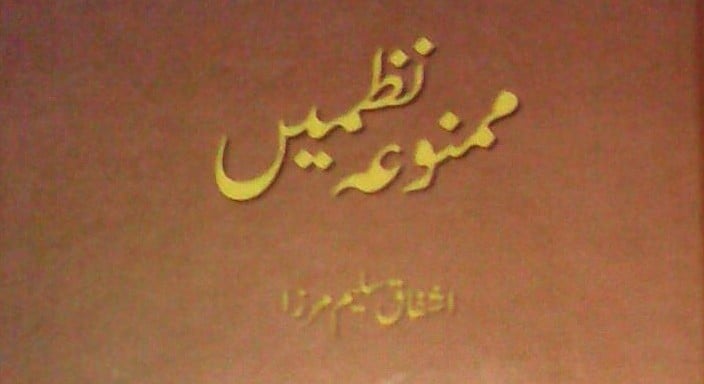
Ashfaq Saleem Mirza’s recent collection of poems reads like subtle and sublime snippets participating in the drama of the poem

"Fables should be taught as fables, myths as myths, and miracles as poetic fantasies. To teach superstitions as truths is a most terrible thing. The child mind accepts and believes them, and only through great pain and perhaps tragedy can he be in after years relieved of them" -- Hypatia
When Encyclopedia Britannica attributed the above mentioned quote to Hypatia, many historians and philosophers questioned its authenticity. Notwithstanding the controversy, the fables should be taught as fables, myths as myths, and miracles as poetic fantasies. And Ashfaq Saleem Mirza has tried to follow this advice in his writings and remains an advocate for rationality and reason.
Mirza is a quintessential renaissance man: curious, iconoclast, philosophical, with an objective eye and a flair for writing. His first monograph was on Qawwali written in 1970s and was received with enthusiasm by readers of Sufi inclinations. Since then, he has remained an avid follower of literary classics as well as a keen observer of social developments across cultures.
When he launched a series of lectures on European political philosophy in Islamabad a couple of years of back, who would have thought that this slumberous capital could lend hundreds of ears to his lively discourse?
Mirza has been able to blend poetry with philosophy with relative ease. Probably, this desire for ease prompted him to opt for free verse rather than a more restricted and traditional genre.
While ghazal in Urdu is probably still the most popular form, it arguably represents subjective poetry; nazm in that sense is more objective or descriptive. The poems in this collection vary from didactic to psychological but the message is clear -- that the oft-repeated inscriptions are not going to help; for example, look at this Order of the Day:
He goes on to question the validity of anything that claims to transcend the perimeters of time and space; philosophy indeed it is but the one that is succinct and enticing.
Mirza reacts to his environs, not as a passive spectator but as an active interlocutor; his poetry tries to enhance our knowledge of ourselves in relation to the world of experience. He builds a scene and then leaves it to our imagination:
The principle of using concrete and unsophisticated imagery is evident here. Though, Urdu poem has seen names such as N. M. Rashed, Meera Ji, and Tasaduq Hussain Khalid who employed free verse to express themselves, it continued to flourish with efforts of Mukhtar Siddiqui, Zia Jullundhry, Akhtarul Emaan, Majeed Amjad, Aziz Hamid Madni and others. Mirza is a newcomer to this realm but his concepts and ideas are diverse and his stress on the need to articulate inner feelings is conspicuous; such as:
While reading Mirza’s free verse, one need not forget that poetry embodies a literary effort that can be conceived in many different ways. Mirza’s effort appears to be largely based on his experiential knowledge; his words are not simple ‘messages’ or ‘statements’. At times they read like subtle and sublime snippets participating in the drama of the poem.
Mirza’s Marxist orientation introduces the values of rebellion and freedom but not in any hyperbole that was noticeable in some of the early progressive writers. He explores human possibilities within this world casting a doubt to any promise for the hereafter:
This naked aggression of religion disturbs him and he tries to incite the reader to contemplate, and perhaps to comprehend our human urgencies. Having read both his prose and poetry, one likes him more as a prose writer than as a poet. In the words of Dr Mubarak Ali, this country has too many poets vying for literary space and hardly any serious prose writer. It will be a great service if Ashfaq Saleem Mirza contributes more profound social analyses that he is best at